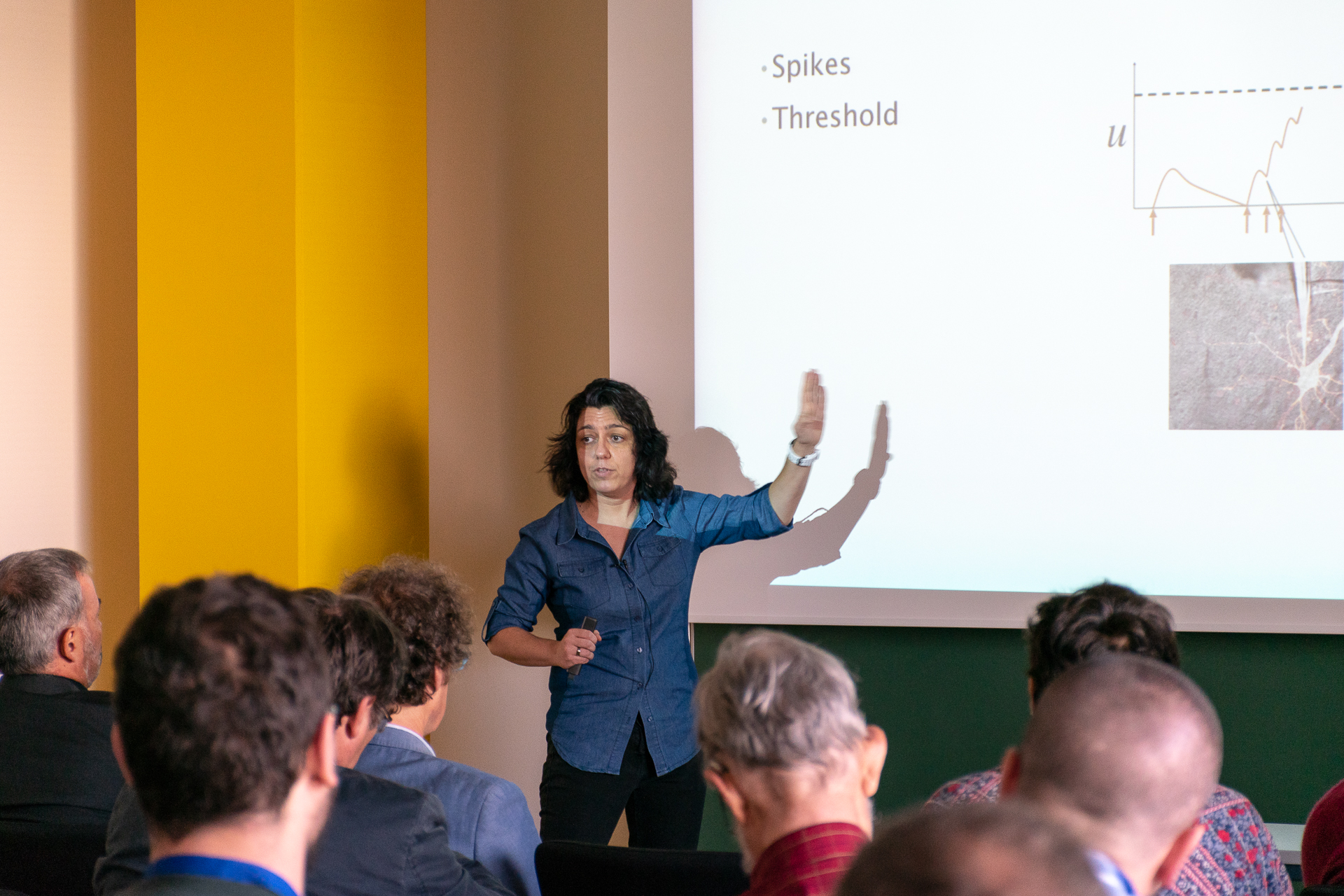Spintronics meets Neuromorphics
Mainz, Germany: October 08th - 12th 2018
An entire suite of novel Neuromorphic computational paradigms, taking inspiration from the functional properties of the brain, has emerged over the past two decades to address the need to efficiently process and analyze the exponential amount of data produced in our Information Age. Research on neural networks, reservoir computers and Boltzmann machines, has demonstrated that it is possible to perform complex computational tasks such as image and pattern recognition at a level comparable to that of a human. All proof-of-concepts have however relied mostly on digital implementations of their respective computational scheme. Whereas this has justified the importance of such techniques, their implementation into scalable and energy efficient analog electronic devices is still much of an open problem. The workshop “Spintronics meets Neuromorphics” aims to show how the challenges posed by neuromorphic computing paradigms can be addressed effectively with spintronics. The low-current tunability, thermal susceptibility and rich dynamics of magnetic thin-film heterostructures offer an ideal toolbox for implementing novel neuromorphic devices. Furthermore, progress in their material science guarantees that promising proof-of-concepts will have a high chance of proving scalable enough to afford industrial production.
The workshop “Spintronics meets Neuromorphics” will bring together leaders of these interdisciplinary fields to facilitate their interaction to the exciting prospects of this emerging scientific landscape. This very young field of bioinspired computing in spintronics lies at the intersection of cutting edge condensed matter physics and advances in artificial intelligence. Recent studies have shown the potential for merging spintronics with the concepts developed neuromorphics. This direction is ideal for creating new paths towards novel computational paradigms and devices. The workshop plans to cover the following topics: Artificial neural networks non-linear dynamics in the brain, brain waves, reservoir computing, associative memories and stochastic computing.
Organizers
Daniele Pinna, JGU Mainz
Karin Everschor-Sitte, JGU Mainz
Julie Grollier, CNRS/Thales lab (France)
Invited Speakers
| Johan Akerman, Gothenburg University George Bourianroff, Intel Corporation (retired) Daniel Brunner, Femto-st Kerem Camsari, Purdue University Dante Chialvo, CEMSC3-UNSAM Massimiliano Di Ventra, UCSD Tetsuo Endoh, CIES Tohoku University Amalio Fernandez-Pacheco, University of Glasgow Shunsuke Fukami, Tohoku University Tara Hamilton, Western Sydney University Laura Heyderman, ETH Zurich |
Axel Hoffmann, Argonne National Laboratory Alexander Khajetoorians, Radboud University Ferran Macia, Universitat de Barcelona Alice Mizrahi, NIST Teodora Petrisor, Thales Group Philipp Pirro, Technische Universität Kaiserslautern Wolfgang Porod, University of Notre Dame Damien Querlioz, Integnano – C2N Theo Rasing, Radboud University Mark Stiles, NIST Eleni Vasilaki, University of Sheffield Weisheng Zhao, Beihang University |














